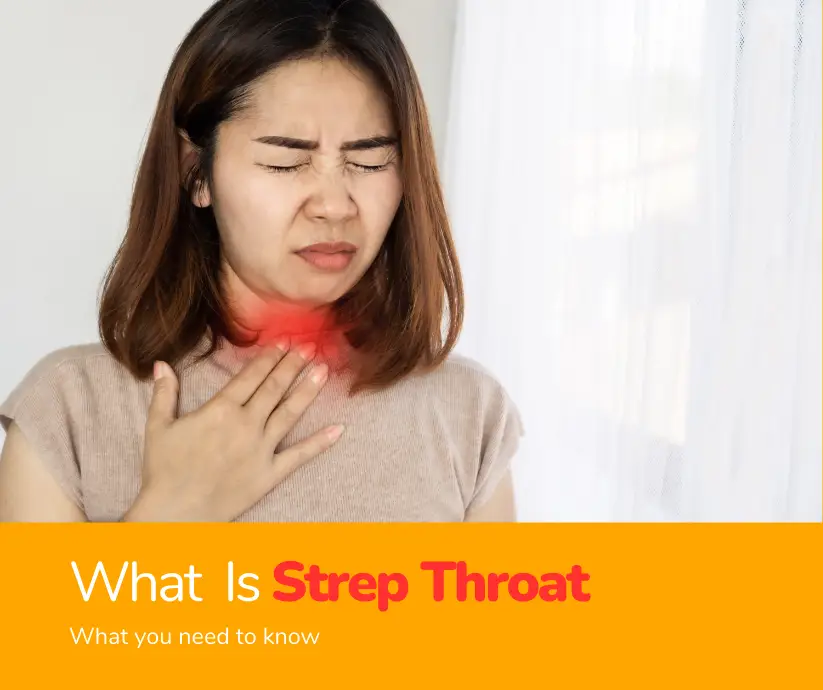Strep throat is a throat infection caused by a type of bacteria called Streptococcus pyogenes, sometimes referred to as Group A strep. It’s pretty common, especially when the weather gets cooler, and throat infections start to pop up more often. The way you catch it is pretty straightforward: if someone infected coughs or sneezes near you, their germs can end up in the air and get you sick. It can also spread through sharing things like drinks or food with someone who has the infection. Kids are particularly prone to getting strep throat, but anyone can catch it, especially in places where people are packed close together, like schools and daycare centers.
Symptoms usually come on suddenly, and they can be rough. You might deal with a really sore throat, find it hard to swallow, notice that your tonsils are red and swollen, or even see tiny red spots on the roof of your mouth. Swollen lymph nodes in your neck and a fever can also be signs that you have it, along with headaches. Some people might see stomach aches or feel nauseous, too. Not every sore throat is strep throat; many of them are caused by viruses instead of bacteria, and antibiotics won’t help with those viral infections.
If you think you have strep throat, a quick trip to the doctor can usually clear things up. They’ll do a simple exam and a rapid test to check for the strep bacteria. Rapid tests are great because they are rapid but aren’t always sensitive. For that reason, all negative rapid tests are verified with a longer, more complicated backup test to pick up early or mild cases.
Antibiotics are the go-to solution for treating strep throat. They really help speed up recovery, lessen the symptoms, and keep the bacteria from spreading to others. The most common options prescribed are penicillin or amoxicillin, and you’ll usually need to take them for about 10 days to ensure the infection is completely gone. Finishing all the antibiotics is important, even if you start feeling better after a few days.
Over-the-counter meds like ibuprofen can really help with the pain and fever. Gargling warm salt water or using throat lozenges might also offer some comfort. Staying hydrated is key, so sip plenty of fluids to keep your throat soothed and prevent dehydration.
If left untreated, strep will often go away. However, untreated strep can cause permanent damage to your heart, joints, skin, and brain. Preventing strep throat is all about practicing good hygiene. Simple things like washing your hands often, especially after coughing, sneezing, or sharing items, can really help keep those germs at bay. Keeping shared spaces clean and avoiding close contact with anyone who’s sick also goes a long way in stopping the spread.
If you or your kid starts showing signs of strep throat, don’t hesitate to contact the office. Getting checked out early can make a big difference in how quickly you recover and lower the chances of complications. Plus, if you get diagnosed, taking a break from work or school for at least 24 hours after starting antibiotics is a good idea to prevent the infection from passing on to others.
In a nutshell, strep throat is a bacterial infection that can be pretty annoying if it’s not treated. Knowing the symptoms, getting to a doctor early, and following through on treatment are all crucial steps to getting back to feeling like yourself. Practicing good hygiene can help everyone stay healthier and avoid spreading the infection. Strep throat might not be fun, but most people bounce back quickly with the right care. If you’re unsure about a sore throat, it’s always best to check in with a healthcare professional to figure out what to do next.
Getting help from our office is easy. We know children get sick without warning, and employers aren’t always sympathetic when parents miss work. For that reason, we encourage you to walk into our office after 2 p.m. If you need an appointment, then all you need to do is send a text message to this number — (260) 217-7061 and our office staff will arrange your appointment. You can also call our office at (260) 327-4321.

